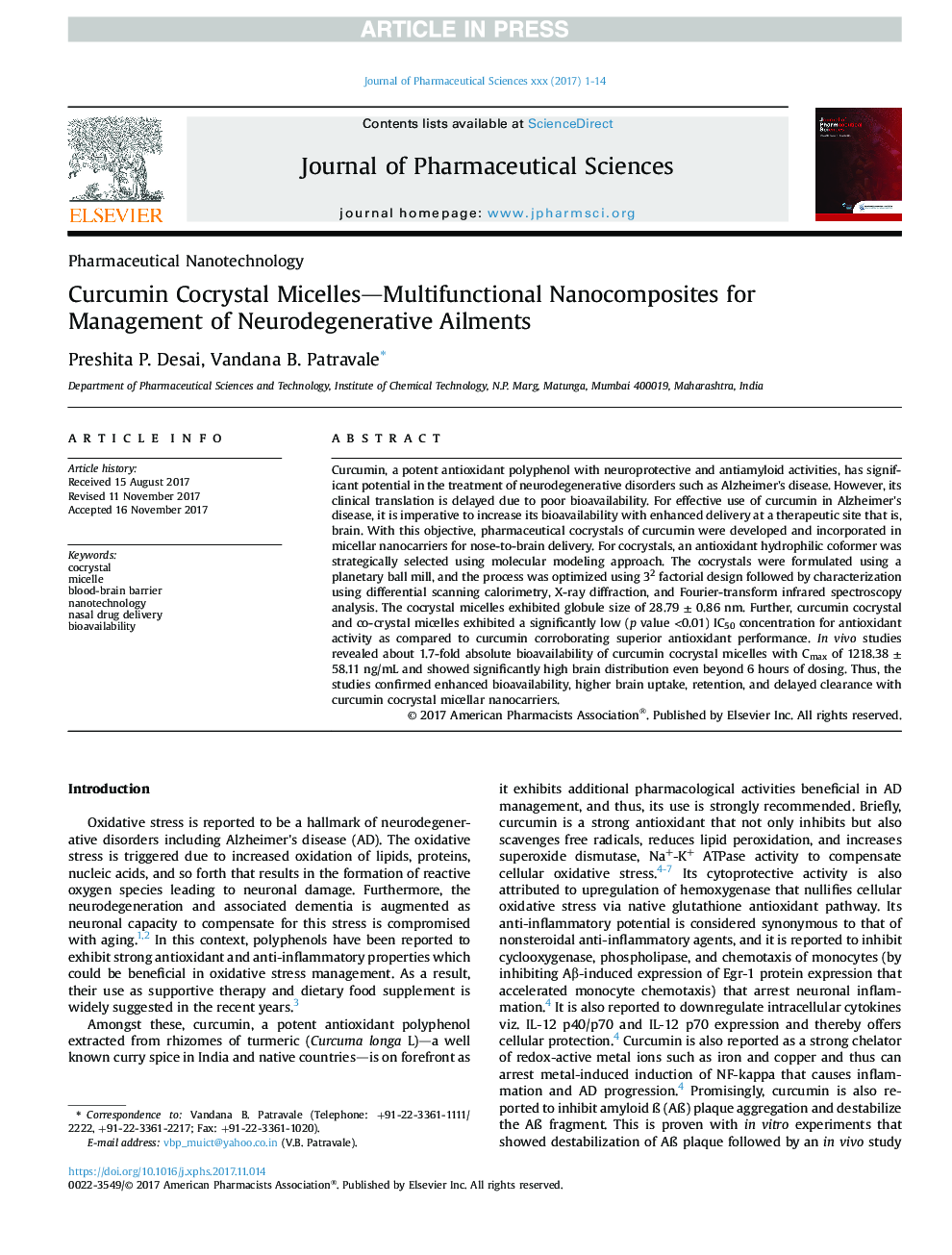| Article ID | Journal | Published Year | Pages | File Type |
|---|---|---|---|---|
| 8513415 | Journal of Pharmaceutical Sciences | 2018 | 14 Pages |
Abstract
Curcumin, a potent antioxidant polyphenol with neuroprotective and antiamyloid activities, has significant potential in the treatment of neurodegenerative disorders such as Alzheimer's disease. However, its clinical translation is delayed due to poor bioavailability. For effective use of curcumin in Alzheimer's disease, it is imperative to increase its bioavailability with enhanced delivery at a therapeutic site that is, brain. With this objective, pharmaceutical cocrystals of curcumin were developed and incorporated in micellar nanocarriers for nose-to-brain delivery. For cocrystals, an antioxidant hydrophilic coformer was strategically selected using molecular modeling approach. The cocrystals were formulated using a planetary ball mill, and the process was optimized using 32 factorial design followed by characterization using differential scanning calorimetry, X-ray diffraction, and Fourier-transform infrared spectroscopy analysis. The cocrystal micelles exhibited globule size of 28.79 ± 0.86 nm. Further, curcumin cocrystal and co-crystal micelles exhibited a significantly low (p value <0.01) IC50 concentration for antioxidant activity as compared to curcumin corroborating superior antioxidant performance. In vivo studies revealed about 1.7-fold absolute bioavailability of curcumin cocrystal micelles with Cmax of 1218.38 ± 58.11 ng/mL and showed significantly high brain distribution even beyond 6 hours of dosing. Thus, the studies confirmed enhanced bioavailability, higher brain uptake, retention, and delayed clearance with curcumin cocrystal micellar nanocarriers.
Related Topics
Health Sciences
Pharmacology, Toxicology and Pharmaceutical Science
Drug Discovery
Authors
Preshita P. Desai, Vandana B. Patravale,
